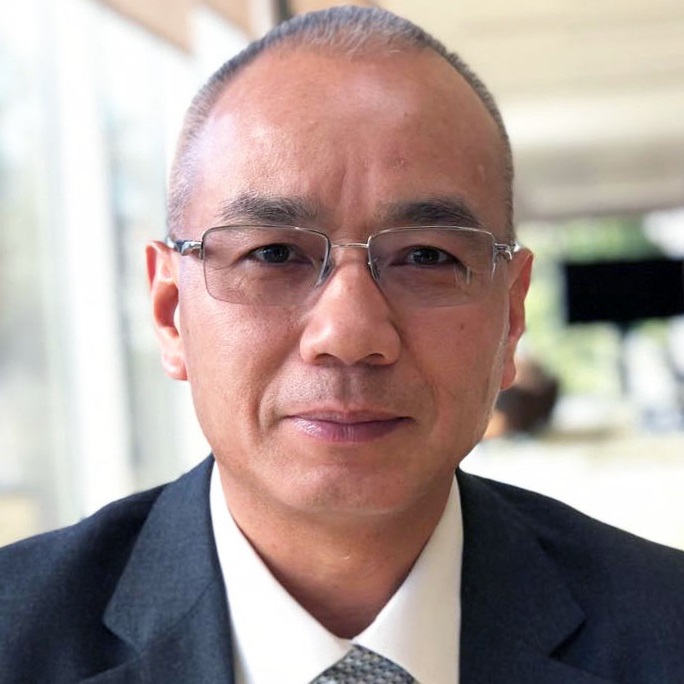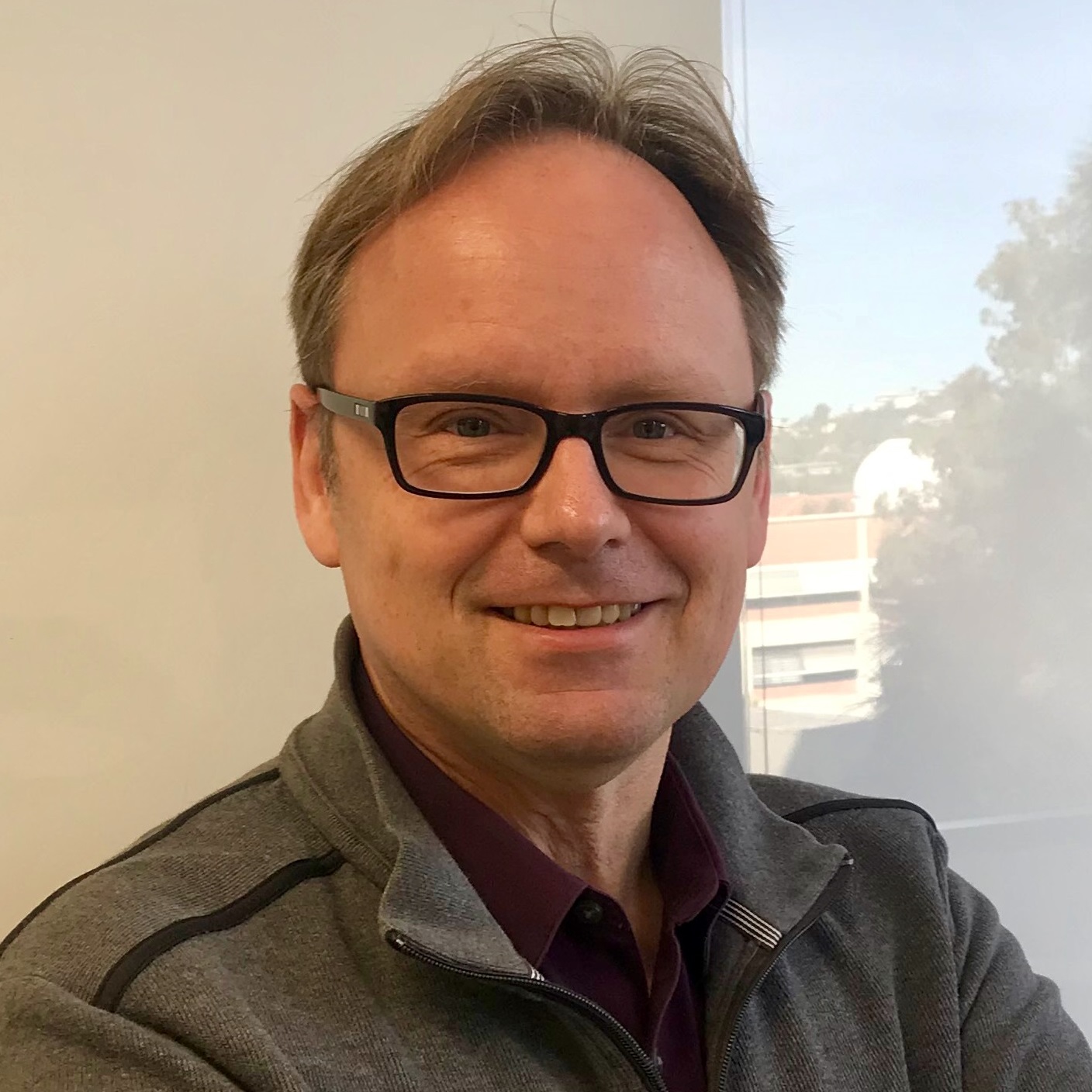Z. Hong Zhou, Ph.D.

- Title
- Professor
- Department
- Microbiology, Immunology & Molecular Genetics
- Institution
- California NanoSystems Institute, University of California, Los Angeles
- Address
-
UCLA Building 114, CNSI 6350
570 Westwood Plaza - City, State, ZIP
- Los Angeles, CA 90095
- Phone
- (310) 983-1033
- [email protected]
- Website
- https://eicn.cnsi.ucla.edu

- Research field
- Structural biology; Computational Biology
- Award year
- 1999
- Pew distinction
- Innovation Fund investigator
Research
My lab focuses on 3D structural studies of biological complexes using cryo-electron microscopy (cryo-EM) and cryo-electron tomography (cryo-ET). These emerging methods are particularly suitable for structure determination of large molecular complexes, viruses, cellular machineries, and bacterial cells in their native forms. Recent efforts have focused on developing and applying advanced cryo-EM and cryo-ET techniques to visualize the dynamic processes of microbial infections and to decipher the mechanisms of fundamental biological processes. Our group has been at the forefront in pushing the envelope of cryo-EM reconstruction to atomic resolution. Research in my laboratory aims to understand the mechanisms governing macromolecular functions by describing large, pleiomorphic, dynamic structures or conformations using the integrative approach of cryo-EM and cryo-ET. The long-term goal of our research is to study their structures and mechanisms of actions by an integrative approach using cryo-EM/cryo-ET, bioinformatics modeling, and high-performance computing. Current efforts focus on three intermediate projects: 1) to develop integrative techniques for atomic resolution cryo-EM, 2) to decipher the mechanisms of actions of multienzyme complexes and multicomponent nanomachines in their natural forms, and 3) to establish a 3D atlas of key events leading to the assembly and spread of several microbial pathogens, including herpesviruses.
As an Innovation Fund investigator, Zhou is collaborating with Frank Alber, Ph.D., to map the location of unknown identities and structures of protein complexes in Plasmodium falciparum, the parasite that causes malaria. Their study combines expertise in structural and computational biology along with state-of-the-art imaging methodologies to overcome the challenge of spatially locating unknown protein complexes and to understand the functional significance of proteins in their native state. The pair will utilize cryo-electron tomography tools and mass spectrometry to uncover novel structures, distribution, and the identities of numerous macromolecules from P. falciparum cell extract. This large-scale proteomic approach has the potential to revolutionize the field of structural biology and further our understanding of malaria parasite biology.
Scholar Keywords
1999 Search Pew Scholars
- John D. Altman, Ph.D.
- Stephen C. Blacklow, M.D., Ph.D.
- Edwin R. Chapman, Ph.D.
- Kathleen L. Collins, M.D., Ph.D.
- Julia Promisel Cooper, Ph.D.
- James A. Goodrich, Ph.D.
- Mark W. Grinstaff, Ph.D.
- Bruce A. Hamilton, Ph.D.
- Rebecca W. Heald, Ph.D.
- Seung K. Kim, M.D., Ph.D.
- Makoto Kuro-O, M.D., Ph.D.
- Jeannie T. Lee, M.D., Ph.D.
- Roy M. Long, Ph.D.
- Kun Ping Lu, M.D., Ph.D.
- Matthew L. Meyerson, M.D., Ph.D.
- Dimitar B. Nikolov, Ph.D.
- Samuel L. Pfaff, Ph.D.
- John Sondek, Ph.D.
- Henrique P. von Gersdorff, Ph.D.
- Z. Hong Zhou, Ph.D.
